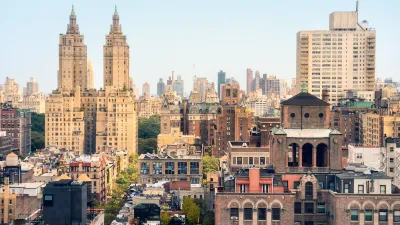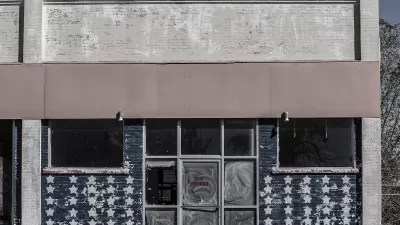A discussion of post-pandemic changes in work and commuting concluded that the city’s overhaul of its zoning code should be less restrictive with land uses.

A panel discussion featuring “a who’s who of Minneapolis urbanism” analyzed the role of zoning in urban development and how the city’s zoning code, currently in the process of being revamped, can be reformed to reflect rapidly changing work habits and housing needs.
As Bill Lindeke explains in MinnPost, “Minneapolis is at the tail end of a discussion about its Land Use Rezoning Study (LURS),” which proposes updates to zoning rules. With the Minneapolis 2040 Comprehensive Plan, the city famously eliminated single-family-only zoning to make way for ‘gentle’ density increases. But in part because the plan did not make other changes to allowable building height and other regulations that impact the construction of multifamily housing, construction of missing middle housing only saw a slight uptick in 2020. The plan was temporarily halted by a judge last June after environmental groups claimed the plan should have its own Environmental Impact Report (EIR), rather than leaving EIRs for individual projects. The decision was reversed in
According to Lindeke and the panelists, the updates don't go far enough to permit a variety of uses in a time when the traditional office/home dichotomy is breaking down. “The new rules overly limit where business activity can take place, which seems like a mistake in 2023. If you want to start a home enterprise, for example, you’re out of luck if you want to have more than one customer at a time. Remove the possibility of commercial activity from half the city’s land area means far fewer pop-up stores, coffee shops, or any other creative idea that we can’t predict today.”
For Lindeke, “In the post-COVID environment, a blanket ban on flexible land uses seems like a missed opportunity.” The question is, “in a world where most former commuters are logging hours from their living rooms, why not let zoning change with the times?”
FULL STORY: Minneapolis 2040 zoning remains stuck in the 1960s

Montreal Mall to Become 6,000 Housing Units
Place Versailles will be transformed into a mixed-use complex over the next 25 years.

Planetizen Federal Action Tracker
A weekly monitor of how Trump’s orders and actions are impacting planners and planning in America.

DARTSpace Platform Streamlines Dallas TOD Application Process
The Dallas transit agency hopes a shorter permitting timeline will boost transit-oriented development around rail stations.

Interactive Map Reveals America's “Shade Deserts”
Launched by UCLA and American Forests to combat heat-related deaths, the tool maps the shade infrastructure for over 360 U.S. cities.

Bicycles and Books — In Sacramento, Libraries Now Offer Both
Adult library card holders can check out e-bikes and e-trikes for up to one week.

Colorado Landfills Emit as Much Pollution as 1M Cars
Landfills are the third-largest source of methane pollution in Colorado, after agriculture and fossil fuel extraction.
Urban Design for Planners 1: Software Tools
This six-course series explores essential urban design concepts using open source software and equips planners with the tools they need to participate fully in the urban design process.
Planning for Universal Design
Learn the tools for implementing Universal Design in planning regulations.
City of Mt Shasta
City of Camden Redevelopment Agency
City of Astoria
Transportation Research & Education Center (TREC) at Portland State University
US High Speed Rail Association
City of Camden Redevelopment Agency
Municipality of Princeton (NJ)





























